Good morning and welcome to Vittles Season 3: You and I Eat Differently.
All contributors to Vittles are paid: the base rate this season is £350 for writers and £100 for illustrators. This is all made possible through user donations. Due to recent events I would prefer people to use Patreon rather than Substack until it is transparent about who they pay. If you would prefer to make a one-off payment directly, or if you don’t have funds right now but still wish to subscribe, please reply to this email and I will sort this out.
All paid-subscribers have access to paywalled articles, including the latest newsletter on the deceptive language specialty tea, coffee and wine companies use to avoid talking about labour.
If you wish to receive the newsletter for free weekly please click below. Thank you so much for your support!
I believe there are two reasons why second-gen diaspora writers seem to have a particular obsession with food. The first is the obvious one: food is the most direct way to form a connection with a lost past. It requires no active engagement apart from consumption; there is no additional language to learn, no additional context really needed. Food can be the easiest (and laziest) way to differentiate yourself from others around you. But there’s another reason too, the opposite reason. Out of all the motives for upending your life and moving to country in the Global North, access to better food has never been one of them. In fact, access to food ─ by which I mean access to culturally specific dishes and ingredients, not access to abundance ─ is one of the things seen as a necessary sacrifice to make for an economically better life. There is a sense of loss, of something that doesn’t quite translate.
Today’s newsletter by Clarissa Wei touches on this trade off, as well as sketching out a world which is currently unrecognisable to those of us still stuck at home. The newsletter is entitled ‘revenge eating’, referring to the many Taiwanese diaspora who have come home during the pandemic and found themselves eating ‘with a vengeance’. That sense of revenge refers to the pandemic, which has taken away the joy of eating out with company for so many people around the world. But it also refers to another sense of revenge, the revenge of someone who is coming back to a home that has been denied to them, the revenge of someone who is making up for lost time ─ not just a calendar year, but lost decades.
This has been a time of enormous stress for the East and South East Asian diaspora in both the US and UK, with the tragic events in Atlanta earlier this month catalysing an outpouring of grief as well as a reckoning with the wave of violence and hate crimes aimed at the community here, as well as in Europe and in India. For those who wish to read more on this, I’ve added some links in the additional reading section at the bottom of this newsletter from food and culture writers I admire who have spoken out. While today’s article is a joyous one, one that should hopefully make you hungry, there is also a penumbra of ‘what if?’. This is a time when many of us, East and South East Asian or not, are thinking about the sacrifices our parent or parents made to come to another country, to better their lives. The question is: has it all been worth it?
Revenge Eating in Taipei, by Clarissa Wei
Soon after lockdown was announced last year, Acer Wang, an engineer based in San Francisco, knew he wanted to escape back home to Taiwan. He put in a request with his employer to be able to work abroad, and passed his time at home by trying to recreate the savoury soy milk of his childhood. He’d soak the beans overnight, cook and filter them, and add a touch of white vinegar to solidify them before dressing them with a flourish of soy sauce for saltiness, throwing in pickled radish and mustard greens for acidity. Then he’d add in chunks of stale youtiao – a deep-fried wheat cruller – for crunch. After a few months of trying to hone his recipe, he got close to what he was craving, but it still wasn’t quite right. ‘It was close in flavour, but what was off was the texture,’ he explains. Eventually, his employer gave him the green light to work remotely from Taipei and he put a pause to his experiments.
At first, the gulf between lockdown in San Francisco and the relative freedom of Taipei took some getting used to. ‘Three days in, I was terrified by how crowded and cramped it was in the grocery store,’ he tells me. The shock has now worn off, and he has remained in Taiwan since arriving in August. He spends much of his free time wandering the night markets with his friends or looking for fresh sashimi at 4 a.m. And as for his soy milk obsession, he no longer feels the need to start making it again: he now lives across the street from the very same dish that he was trying to recreate. The difference, as it turns out, was the fine stone milling, a step no electric blender could recreate.
Wang is one of many of the Taiwanese diaspora who have returned to Taiwan for a pandemic-free life. According to Taiwanese immigration figures, 251,640 more Taiwanese people entered in 2020 than exited, which is four times the total number entering in 2019. Although borders have technically been closed for nearly a year, most of the diaspora are getting in on the basis of dual citizenship, a Gold Card (an open work visa for exemplary individuals), or a temporary visitor permit, granted based on family ties.
The draw of moving back to Taiwan is obvious. While the United States has recently surpassed half a million Covid deaths, Taiwan has had only had ten – one of the world’s best records, made possible by an extremely proactive Ministry of Health, a stellar tracing system, early border shutdowns, and a broad, apolitical practice of wearing masks in public spaces. Despite a notable lack of tourists, life here is fairly normal: in the past seven months I’ve gone to packed bars, a massive LGBTQ parade, and underground raves, all without any fear of contracting Covid. For new arrivals, there’s just a mandatory two-week quarantine, an additional week of self-monitoring, where people are free to move about but advised to stay away from large crowds, and then, finally – sweet, delicious freedom. The first thing people look forward to is eating out, and they’re doing so with a vengeance.
‘It’s the first time I’ve stayed here for more than four weeks,’ says Catherine Chou, a history professor at Grinnell College who has been teaching her classes remotely from Taipei. Chou’s parents have also returned to Taiwan, and have been showing her some of their favourite childhood bites, like slippery, sweet eel noodles from the south of Taiwan and platters of cold-cut goose. She makes a point to dine with her extended family on a weekly basis, a pleasure that she hasn’t had before.
Sometimes the choice of food available, and the freedom of being able to eat it, can be overwhelming. ‘When I first got out of quarantine, I freaked out,’ admits Tait Sye, a senior director at Planned Parenthood who is normally based in Washington DC. ‘Now I go to bars and eat out all the time.’ He tells me he has only just stopped eating at Din Tai Fung every day.
It’s not just the casual sector that’s booming. Most of the fine-dining restaurants in Taipei have been fully booked for months, in part because the diaspora – who make more money than the average Taiwanese person – have been coming back in droves, many of them booking restaurants while trapped in quarantine. Fine dining is especially appealing because it offers an elongated and unique experience, which people who have been in lockdown especially miss. This has meant that, in opposition to the rest of the world, fine dining has boomed because of the pandemic, even during the winter break or after Chinese New Year, when business would ordinarily slow down.
‘I called many restaurants that usually aren’t a problem to book a week ahead and they were all full during the holiday,’ says Joan H, of hungryintaipei, one of the most influential food-centric Instagram accounts in Taiwan. ‘It’s not just [the Taiwanese diaspora] that are here. It’s also their parents, the students that would have gone to college abroad, and all the people that usually travel to China for business.’
The only real downturn the restaurant industry saw was in the early days of the pandemic. ‘February, March, April, and May of 2020 [were] horrendous,’ Taiwanese-American chef Eric Liu tells me. Liu is one of the chefs behind Gēn Creative, a swanky, shared-plates restaurant in Taipei. Their clientele is usually evenly split between tourists and locals, so when the pandemic hit, their business was devastated. ‘But there was a steady increase of people after the summer and this past winter. I definitely saw an influx of clients coming back from the US because school was out,’ he says. Liu says the pandemic has given him a new-found appreciation for Taiwan. ‘In Taiwan we’re in a strange parallel universe,’ he says. ‘We’re fortunate to be able to still see our guests.’
I first realised the geopolitical tables had turned when, after a spell of small talk, a taxi driver in Taipei asked when I was planning to head back home to America.
‘There’re a lot of people like you here right now,’ he said, explaining that he’s observed a recent surge of Taiwanese-Americans who came to Taiwan to escape the pandemic, and assuming that I was one of them.
‘No, no. I’m based here,’ I replied. ‘I didn’t come here to escape the pandemic. I’m here to stay.’
‘Good decision. America isn’t doing so well,’ he said, genuinely worried. ‘You’re lucky.’
Perhaps it’s a symptom of living in a small island country that’s constantly dismissed on the international stage, or the fact that China has an arsenal of missiles pointed at us, but prior to 2020, many people here in Taiwan had a rosy-eyed view of the West and a dismissive view of home. My own parents, who grew up during a tumultuous time of martial law, left everything behind to start a new life in Los Angeles, subscribing to a belief common among their generation: that to get ahead in the world, one had to go abroad.
Like many Taiwanese families in America, our path to Los Angeles was shaped by the Immigration and Naturalization Act of 1965, which eliminated the immigration system that gave preferential treatment to western Europeans. In the ten years that followed the act’s passing, the Chinese-American population in the US nearly doubled; many of those immigrants came from Hong Kong and Taiwan. Previous waves of immigration from the greater China area had consisted of rural families from southern China, but this newer wave, of which my parents were a part, was formed mostly of college-educated, urban folks who had much more social mobility than their predecessors.
In childhood, conversations about our life back in the States would consistently elicit awe and envy among friends and family in Taiwan. As a courtesy, my parents would politely downplay our privilege by pointing out how terrible American food was compared to that in Taiwan, but the aunties and uncles would remark that, although America didn’t have great food, it had great opportunities, and for that we should be thankful.
Five years ago, the taxi driver would have likely expressed shock that I wanted to stay in Taiwan, and would cite low wages, threat of war, and a lower standard of living as good enough reasons to leave. Yet it is Taiwan’s universal healthcare and pandemic-free borders, not its food, which have convinced people that it’s not such a sleepy place after all. Taiwan’s ability to maintain normalcy in the midst of a global pandemic is part of a wider trend, in which the balance of power between the East and West is shifting. So much of the immigrant experience in the Western world is based on the notion that the West is inherently better than the East. It was on this assumption that our families uprooted our lives, moved to an entirely different country, and learned a new language. The pandemic has reversed that assumption, leaving many people questioning or abandoning their preconceptions about Western models of development – namely, that individualism is better for society than public cooperation.
‘When I told people I [was] coming back to Taiwan this time, they wanted to make sure I was staying for a long time,’ says Yen Wei-Ting, an assistant professor at Franklin & Marshall College in the States. Yen tells me she’s been devouring the staples of her childhood, and spending as much time with her family members as possible. ‘So far I’ve had pickled watermelon, fish soup, lamb meat, and very fresh seafood,’ she says. ‘I’m taking every opportunity I can now to dine out.’ Yen’s family is based in Taiwan and she says her parents’ perception of the States has declined dramatically in recent years. ‘They think it’s chaotic and feel that I’m not protected there,’ she says. ‘I feel really fortunate for this opportunity to come back [to Taiwan] and live a normal life. It’s a luxury.’
A month ago, I gathered a large group of fellow Taiwanese-Americans together for dinner. Hunched over on short stools, we dined al fresco on a rooftop adjacent to Daan Forest Park and joyfully shared slabs of boiled stinky tofu – mildly putrid, porous, and soaked in chili oil (‘the best stinky tofu I’ve had,’ someone remarked) – crispy deep-fried oyster mushrooms dressed in white pepper, and grilled salmon brushed with a sweet and savoury miso glaze. The meal was accompanied with tall emerald-green bottles of Taiwan Beer, a local amber lager great for washing down anything fried and oily. It was only six in the evening, but we had to be much more gentle with the drinking than normal; many people had to check in for work in a couple of hours due to the considerable time difference between their workplaces back home in the States.
In spite of their best efforts, many of the returnees will have to depart Taiwan soon because of work, relationship, and mortgage obligations. Only some of them – the entrepreneurs and freelancers – have decided to stay indefinitely. ‘It’s not a matter of if I want to. I have to,’ explains Esther Wu, a Taiwanese-American in the healthcare industry who is from Los Angeles and has also temporarily come back to Taiwan. They note that when they leave, they’re leaving with a new-found appreciation of the country that their families had gone to so much effort to migrate away from.
‘My parents would never imagine a day that my Taiwanese passport would be more important than my American one,’ says Elizabeth Zhang, a Taiwanese-American ad executive from New York City who was here for two months and recently returned back to the States.
Zhang (who asked that her real name not be used: her American employers tolerate remote working, as long as it’s done in secret) planned out her days in Taiwan with a spreadsheet of restaurants, eating solo and going out for drinks in the way she would do on a weeknight in New York. She wishes she could relocate to Taiwan, but her job and mortgage keep her in the States. Adjusting back to American life has been tough – especially being confined in New York after weeks of being able to eat out freely in Taiwan – and she’s already trying to carve out time for another trip back. ‘A lot of Asian-Americans want to completely assimilate into US society. Bad move,’ she jokes. ‘Sure, Taiwanese salaries are still very low. But Taiwan has it together!’
Meanwhile Sye, who will eventually have to head back to DC, is making the most of his time in Taipei, joining coffee classes, networking over dinners, and browsing restaurants on Instagram. But for the first time, because of the vast contrast of life here versus the States, he is being careful about what he puts online. ‘I’m really conscious of my privilege so I’m not posting a big dinner on Instagram,’ he laughs. ‘Instead, I’ll post about masks.’
Credits
Clarissa Wei is a Taiwanese-American freelance multimedia journalist based in Taipei. Her work is centered on the food and culture of the greater China area; she recently won an award for her ten-part video series on regional Chinese noodles. In her spare time, she tends to a small plot of land in Taipei, where she's building a subtropical food forest. You can find her on Twitter @dearclarissa.
Many thanks to Sophie Whitehead for additional edits.
Additional Reading
This is What Anti-Asian Hate Looks Like in the UK, by Angela Hui
It’s Time We Stopped Downplaying the UK’s anti-Asian Racism, by Zing Tsjeng
The Flawed Premise of ‘Love our people like you love our food’ by Bettina Makalintal





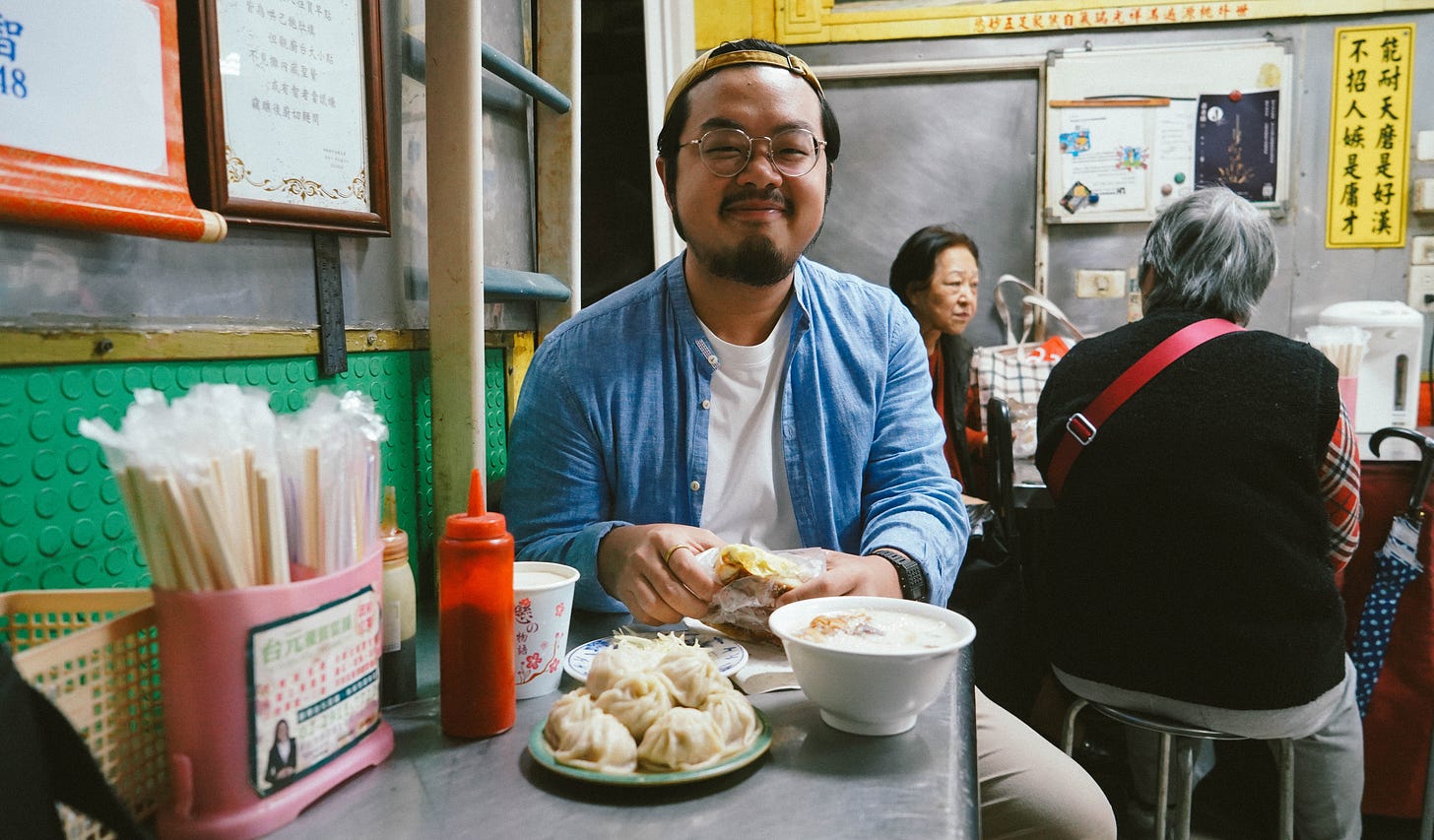
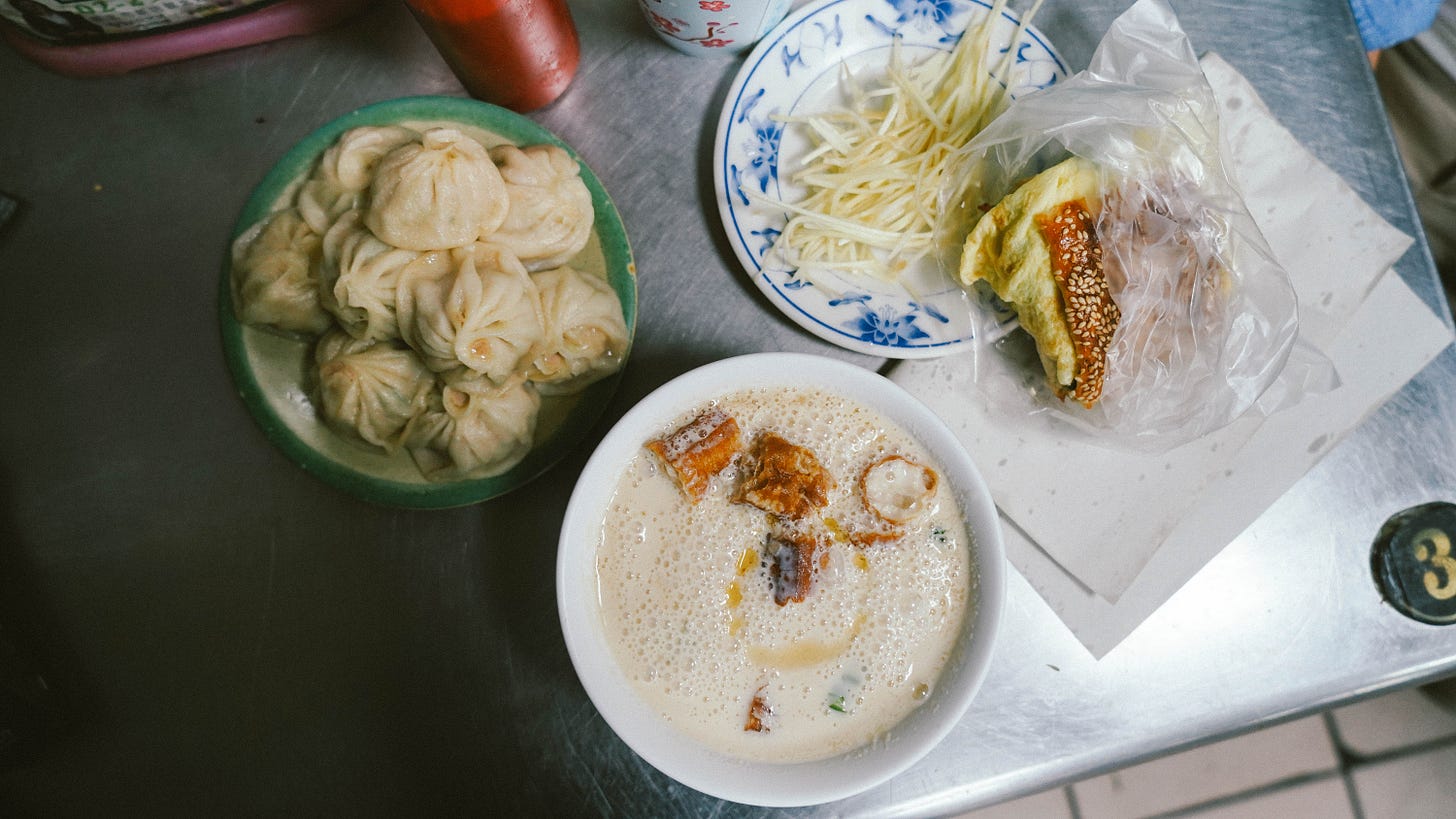
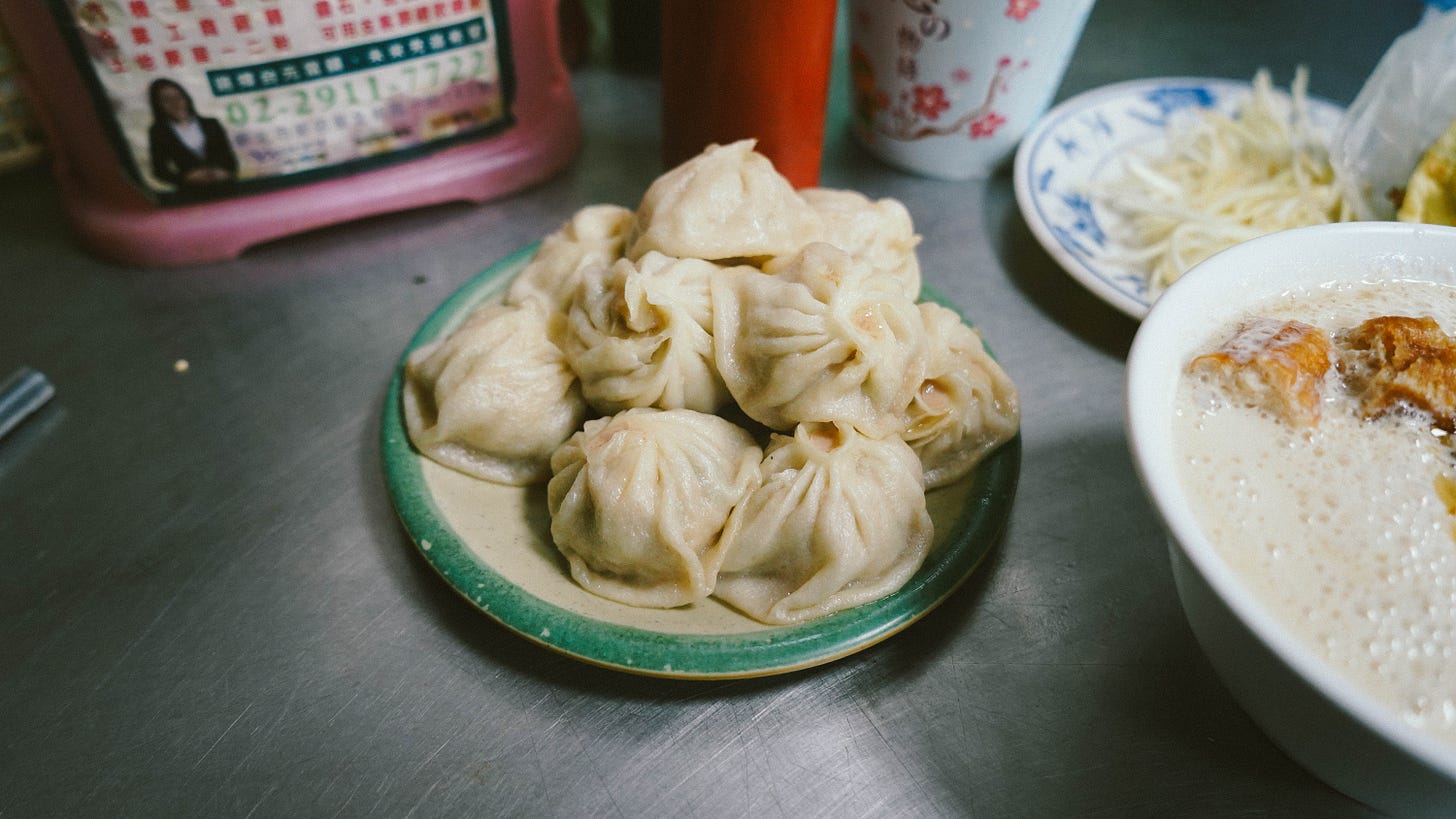
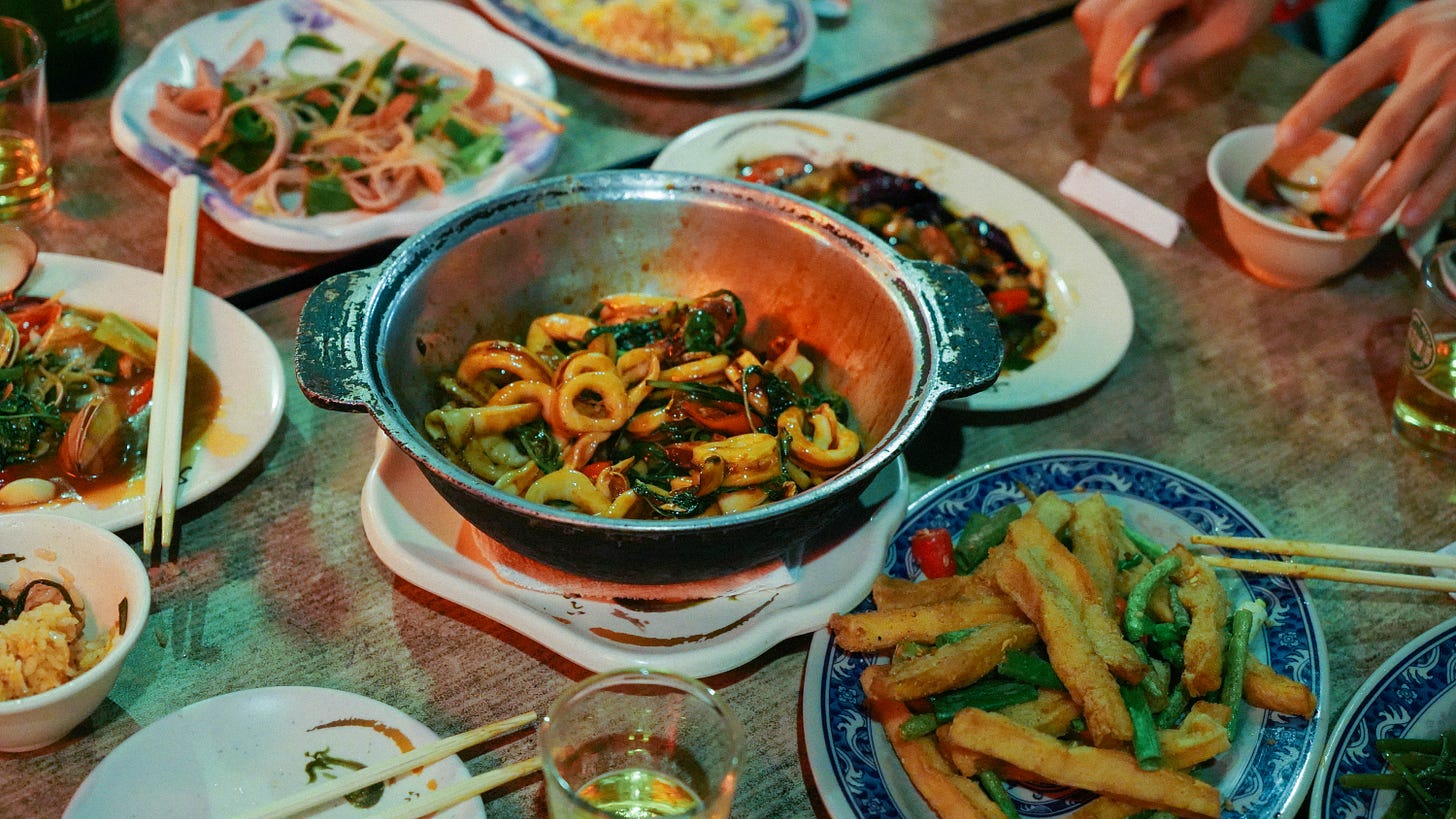
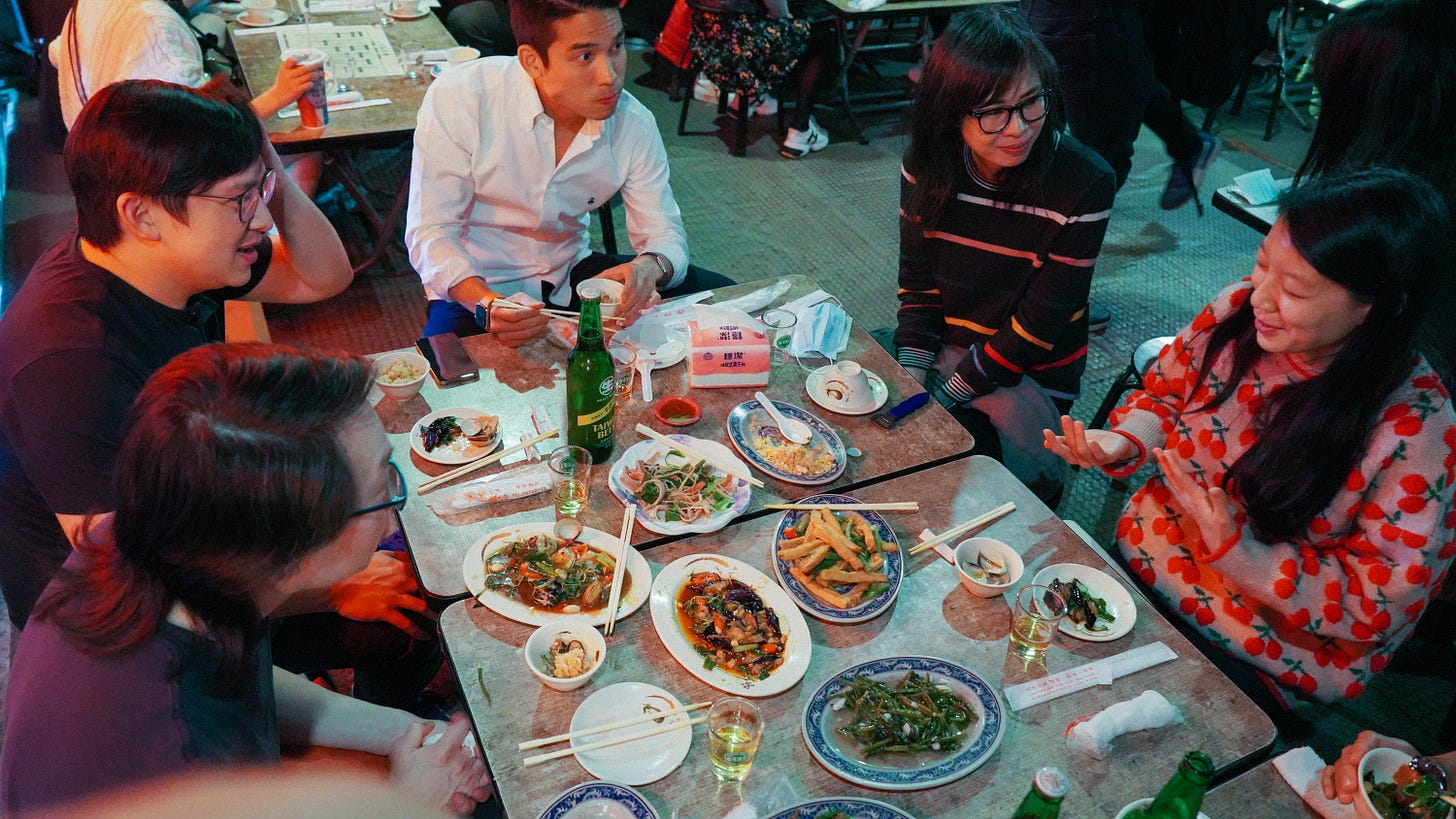
What a lovely piece surrounding a lovely country.
I was there in January 2020 just as the pandemic was beginning, and I could have stayed forever. The people, the food and the calm are all things I still think about almost weekly.